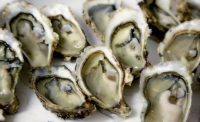Hong Kong’s Office of the Ombudsman has publicly stated that food safety checks of fresh produce in the city are “hasty.” This comes as the Office of the Ombudsman--tasked with investigating the public administration and any complaints logged against government officials or departments--unveiled results from an investigation entitled “Food and Environmental Hygiene Department’s System of Safety Control for Imported Fruits and Vegetables”. The investigation was prompted by a “Complaint about the Handling of an Application for Housing Transfer by Social Welfare Department and Housing Department”--also outlined in a second report.
Fruits and vegetables undergo mediocre inspections, and sometimes no inspections are performed at all. Laboratory test results are slow. Also, the rules on lead residue in leafy greens are rather lax. These loopholes are potentially jeopardizing the health and wellbeing of Hong Kong’s residents.
The Centre for Food Safety under the Food and Environmental Hygiene Department is the body tasked with sampling fresh produce that is imported to Hong Kong. Inspectors are to look for pesticide residues and the presence of certain heavy metals known to negatively affect human health.
This current investigation honed in on fresh produce sampling procedures at Hong Kong’s land, air and sea import checkpoints.
At the land checkpoint--produce sampling was completed at a “very hasty pace.” Inspectors focused solely on produce crates near the checkpoint doors, ignoring those located deeper inside the delivery trucks.
At the sea checkpoint--routine checks of fresh produce were only conducted when inspectors had been previously notified of a possible food safety risk. The Office of the Ombudsman says that 80 percent of Hong Kong’s imported produce arrives by sea.
“The situation is undesirable,” says Ombudsman Connie Lau Yin-hing.
In part, the report reads, “The system of sampling checks on [produce] imported by sea is clearly rather lax. Most of the fruits and vegetables imported by sea would have already entered the market for public consumption before having undergone any inspection.”
In addition to lax inspection habits, laboratory tests take about 19 working days to be released. However, testing and result wait times shrunk down to just 2 days when a possible health scare or outbreak was suspected.
Although inspectors are responsible for checking foods for pesticides and metals, not all foods require such scrutiny. In fact, some of the most commonly used foods in Hong Kong--lotus roots and bean sprouts--do not undergo these safety checks.
The city’s threshold for lead content in fresh produce is another point of contention. There, leafy greens are permitted 6 mg per kg of lead present on fresh produce. However, the code set by Codex Alimentarius sets the maximum limit of lead in leafy greens at 0.3 mg per kg.
As a result of these investigative findings, the Ombudsman’s office has supplied Hong Kong’s Food and Environmental Hygiene Department with a plethora of recommended changes to update and improve the city’s fresh produce inspection practices.
The results of Hong Kong’s safety practices for imported fruits and vegetables is available on the Office of the Ombudsman’s website.
Sign up for Food Safety Magazine’s bi-weekly emails!
Subscribe to our podcast: Food Safety Matters!




